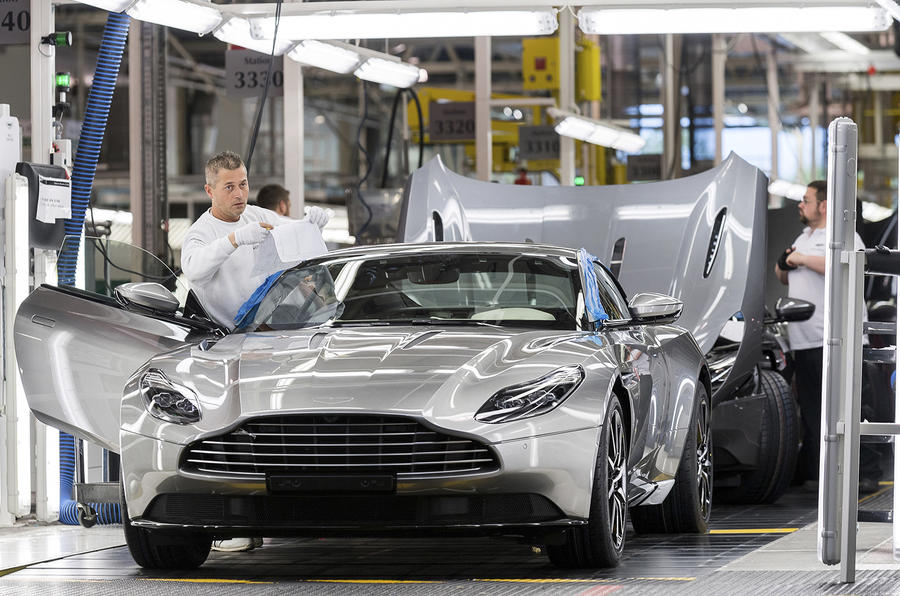Aston Martin has posted production and sales volumes at a nine-year high, spurred by demand for the new Aston Martin DB11.
A growth in sales of 58% over 2016 takes Aston Martin’s revenue to in excess of £840 million, with 5117 cars delivered across 2017. This revenue equates to pre-tax profits of more than £180 million.
The profits are also bolstered by low-volume projects such as a DB4 GT continuation and the limited-run Zagato range, deliveries of which conclude in 2018 with the Speedster and Shooting Brake.
Growth in key markets, including China, the UK and the US, bolstered the bumper year for the Gaydon-based brand.
This will be good news for Aston Martin’s owners, who are reportedly considering a flotation of the company on the stock market.
CEO Andy Palmer said: “We continue to perform ahead of expectations, both in terms of financial performance and in meeting our targets for the DB11 and special vehicles. This strong sales performance shows that our Second Century transformation plan is building momentum.”
First deliveries of the new Vantage, which is expected to become the brand’s best-seller, are due in early 2018. A raft of new products is scheduled subsequently, including a revival of the Lagonda brand and the launch of Aston Martin’s first SUV and a new mid-engined supercar.
Read more
Aston Martin owners consider floating company on stock market
2018 Aston Martin Vantage makes public debut in LA
Aston Martin DBX design signed off for 2019 launch
Aston Martin mid-engined 488 rival 'signed off' for 2021 launch





Join the debate
Add your comment
meanwhile...
A quick Google search reveals that Ferrari have sold in excess of 8 000 cars (output deliberately limited!) and enjoyed a return of 3.3 Billion euros for 2017...
Something does not add up somewhere.
£180 million / 5,117 vehs =
£180,000 / 5 = approximately
£36,000-00 gross profit per vehicle ?!
Stats etc
Not that simple I'm affaid. 25 DB4 GTs at £1.5 million, then there's the clothing range etc.
It's reassuring to hear that
It's reassuring to hear that increased production is matched by increased sales otherwise Aston Martin would be like a mass volume manfacturer and stock-piling cars rather than building most of their cars to order.